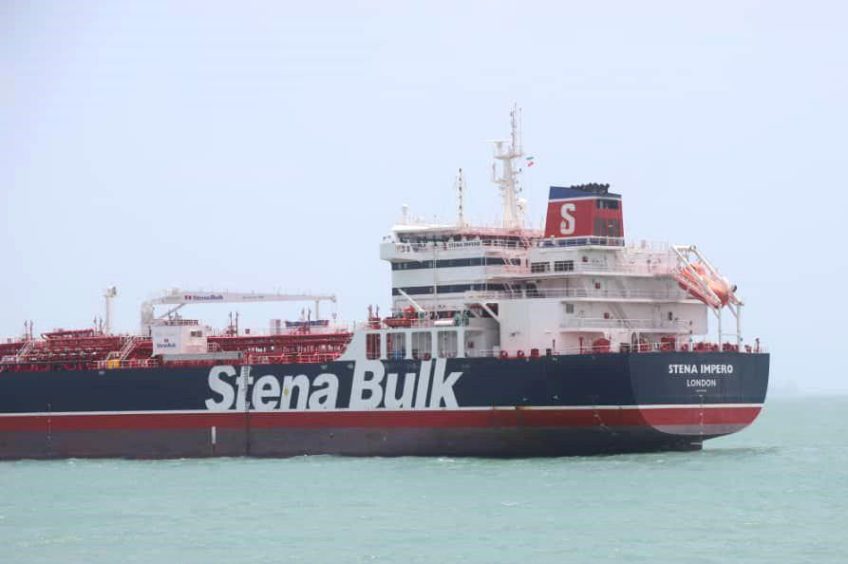
Britain is to seek to put together a European-led maritime mission to protect ships sailing through the Strait of Hormuz following the seizure by Iran of a British-flagged tanker.
Following a meeting of the Government’s Cobra emergencies committee, Foreign Secretary Jeremy Hunt said “constructive discussions” had taken place with a number of countries over the preceding 48 hours.
Mr Hunt condemned the detention of the Stena Impero by Iranian Revolutionary Guards on Friday as an “act of state piracy”.
He said the proposed new European mission would focus on ensuring free navigation through one of the world’s most important waterways, which carries a fifth of the world’s oil and a quarter of its liquefied natural gas flow.
It would seek to “complement” US proposals to protect shipping in the region, although it would not form part of the American “maximum pressure” policy on Tehran as the UK continued to support the Iran nuclear deal which the US has repudiated.
“It is with a heavy heart that we are announcing this increased international presence in the Gulf, because the focus of our diplomacy has been on de-escalating tensions in the hope that such changes would not be necessary,” Mr Hunt said.
He added: “If Iran continues on this dangerous path, they must accept the price will be a larger Western military presence in the waters along their coastline, not because we wish to increase tensions but simply because freedom of navigation is a principle which Britain and its allies will always defend.”
Mr Hunt confirmed the Department for Transport had raised the security level for British-flagged shipping to its highest level – level 3 – and was advising against any passage through Iranian waters.
It was also urging those ships which were planning to sail through the Strait of Hormuz to notify the UK authorities so they could if necessary arrange for them to travel in convoy.
Mr Hunt confirmed the Royal Navy Type 23 frigate HMS Montrose had tried to reach the Stena Impero after it radioed for help but was unable to reach it in time.
He rejected Tehran’s attempts to link the seizure of the vessel with the detention by Royal Marines of the Iranian tanker Grace 1 off Gibraltar over a suspected breach of EU sanctions on Syria.
“The vessel’s owners have confirmed that Stena Impero was exercising her legal right of transit passage when she was intercepted,” he said.
“So let us be absolutely clear: under international law, Iran had no right to obstruct the ship’s passage, let alone board her.”
Following criticism that defence cuts had left the Navy unable to protect British shipping, Mr Hunt – who is running to be the next Tory leader – acknowledged they had gone too far.
“I think the Navy in particular has become too small, so I hope whoever the next prime minister is will reflect carefully on what we can do to bolster our great Royal Navy,” he said.
However he faced criticism from former Tory leader Iain Duncan Smith, who questioned why the Government had not been co-ordinating more closely with the US, which has been pouring forces into the region.
“We have known for some time that there was a heightened problem in the Gulf and our strongest ally was there with some force,” he said.
Earlier, US secretary of state Mike Pompeo said in the “first instance” it was up to the British to “take care” of their shipping.
“This is the kind of behaviour we’ve seen out of Iran for 40 years. The United States has a responsibility to do our part, but the world’s got a big role in this too to keep these sea lanes open,” he told Fox News.
Meanwhile, the Iranian authorities released the first pictures of the 23-strong crew of the Stena Impero – including nationals from India, the Philippines, Russia and Latvia, although no Britons.
Some members were shown sitting around a table while another two were pictured in front of a nautical instrument.
Iran’s foreign minister said his country seized the tanker because it was violating “international law on safe passage” in the Strait of Hormuz.
Speaking during a visit to Nicaragua, Mohammad Javad Zarif said the British ship had “turned off its signalling” for longer than is allowed, and “was passing through the wrong channels”.